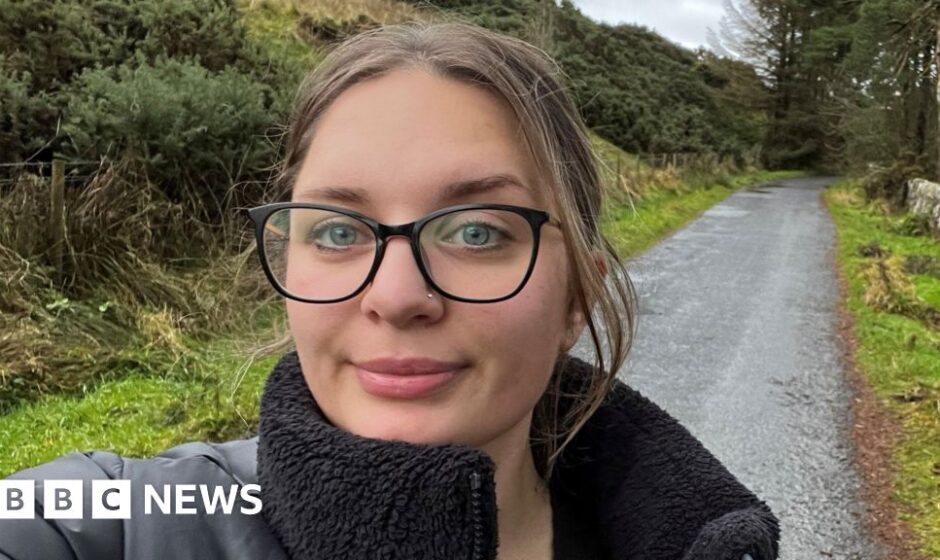BBC Scotland News
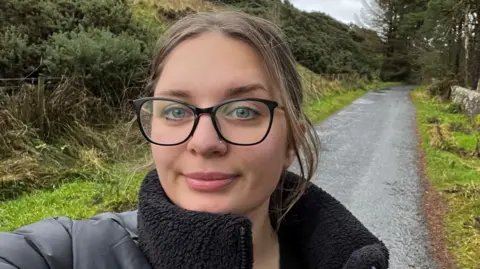 Weronika Somerville
Weronika SomervilleWhen 14-year-old Weronika Somerville woke up from brain surgery to remove a tumour, she didn’t recognise the people in her hospital room.
They were her parents.
On the way to a post-op scan, a medic started to talk to her.
He realised she had no idea who he was – despite the fact he was the surgeon who had carried out her procedure.
Weronika had suffered a rare complication – unusual retrograde amnesia. She couldn’t recall events or people from her past life.
Her memories never returned.
“I only know from what my parents have told me,” Weronika told BBC Scotland News.
“The doctors were checking if I knew them – I remember so many faces I hadn’t seen before.
“On the way home it was petrifying – getting in a car was scary. I was just going along with what I was told to do.
“It felt like I was going home with strangers who said they were my mum and dad – my mum was showing me my room they had done up for me for after my surgery – but none of it looked like it belonged to me.
“I remember looking at my clothes and thinking who would wear this?”
Weronika, from Prestonpans near Edinburgh, said she knew it was ok to be there, but said her whole personality, and her family relationships, changed.
She said: “They never lost that connection with me, but even now, I don’t think my relationship is as close as they would want it – I am more isolated and have been my own person since the surgery.
“My parents kept showing me photo albums – and that really annoyed me – they were talking and laughing about things I did when I was younger but no matter how hard I tried to focus on it, I got nothing.
“I didn’t like looking at photos with them because they have emotional attachment to these moments and I don’t.”
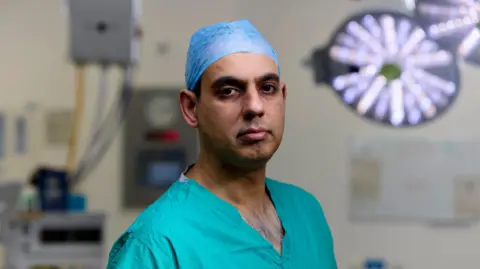 BBC/Dragonfly Film and TV Productions
BBC/Dragonfly Film and TV ProductionsWeronika had to re-learn everything – starting with primary school maths and English.
She said it took little time to re-learn as after the lessons were taught, the memory of that seemed to be unlocked – she learned her times tables after going over them twice.
Back at high school, she struggled. She did not recognise any of her friends, and, starting over, she gravitated to different people.
After a decade of monitoring, Weronika’s tumour started to grow slowly, and in March last year, the time had come for action.
More brain surgery
Weronika – now 25 and about to be married – needed surgery.
And one of her first thoughts was – would she lose her memory again?
“I was devastated,” she said. “The surgeon said it was definitely possible that it could happen again. But the tumour was deeper this time and I needed the surgery to improve my life expectancy.”
Weronika’s treatment is followed in the new series of Surgeons: At the Edge of Life on BBC Two.
In the seventh series, which follows surgeons in NHS Lothian, consultant neurosurgeon Imran Liaquat explains the jeopardy of the complicated procedure.
The tumour is in the right frontal lobe of Weronika’s brain – the area responsible for abstract thought, creativity and concentration.
He will have to identify what is tumour and what is normal tissue then resect – or cut – around it without taking tissue that would affect brain function.
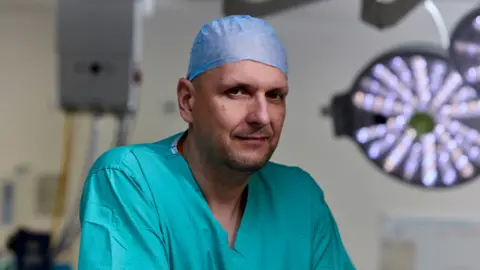 BBC/Dragonfly Film and TV Productions
BBC/Dragonfly Film and TV ProductionsMr Liaquat said: “Preserving cognitive function is very important – it’s the essence of who we are as an individual and that can be disrupted by surgeons. We carry the complications and push the barriers of optimal resection and that does bear on you.”
He added that it was imperative to remove as much as possible.
“Evidence for tumours like Weronikas is that we need to remove at least 80-90% of the tumour to add survival advantage.”
Assisting in the operating theatre is the man who performed Weronika’s original surgery when she was a teenager – consultant neurosurgeon Drahoslav Sokol.
Mr Sokol said: “It’s not easy to think about doing another surgery, particularly in the context of her previous complication but we really need to remove her tumour to prevent further problems in the future.”
‘What if I don’t like him?’
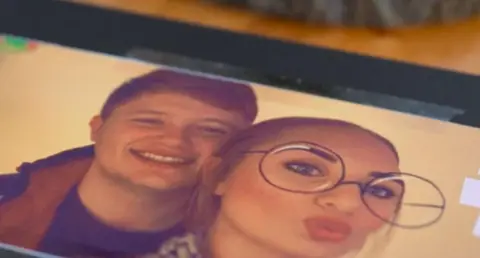 BBC/Dragonfly Film and TV Productions
BBC/Dragonfly Film and TV ProductionsWeronika was terrified she would wake up and not know who her fiance Cameron was.
“The fear was that the last time it happened it changed who I was – what if I don’t actually like him?”
But Cameron took it in his stride, making photographic memory books and scrapbooks of their relationship and writing notes and letters to his fiancee.
He said: “She means everything to me – absolutely everything. If she was to lose her memory I would just have to make her fall in love with me all over again and take it from there.”
Practically, Weronika wrote down all her banking details and passwords, organised a will, and wrote a letter to her partner for the worst-case scenario.
Coming round from her operation, the room held its breath.
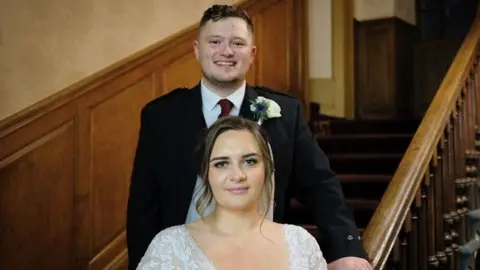 Weronika Somerville
Weronika Somerville“I woke up and everyone was there – this time around I didn’t feel like I had a surgery, I felt like I had a nap,” Weronika said.
“My family were in pieces the whole time.
“But I was completely aware and I knew exactly what happened. I was able to talk.
“I saw Imran and I remember saying ‘I still remember you’.”
Weronika is recovering well and married Cameron in December.
She is looking forward to a happy life after 100% of the tumour was removed and she is indebted to the two men who made it happen.
“I don’t think I could express my gratitude to those two surgeons enough,” she said.
“This is the second time they have saved my life.
“When you watch it you realise what goes into it and they are like gods – they are amazing.”
#Brain #surgery #childhood #memories
